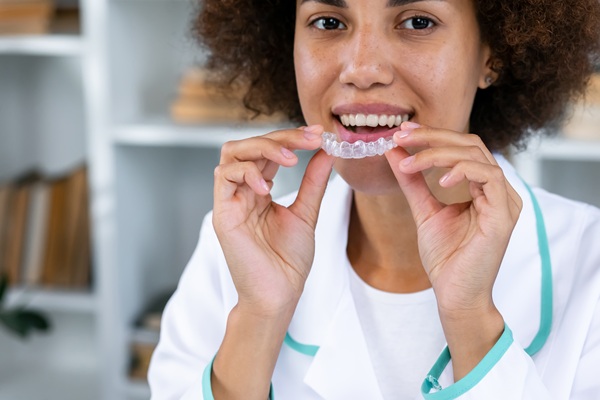Preventive Dentistry: How Important Is Flossing?

Preventive dentistry focuses on the prevention and early detection of oral health concerns to help ensure they do not develop or progress to a more severe stage that is harder to treat. One of the primary goals of preventive dentistry is to help patients care for their teeth between check-up visits, which should include proper flossing during one’s daily oral care routine.
The benefits of flossing and why it is vital for your oral health
Many understand the importance of brushing teeth, but the importance of flossing is often understated or not fully appreciated by many. This review discusses the benefits of flossing for preventive dentistry to illustrate exactly why dental professionals find it so important for patients to floss regularly.
Helps prevent gum disease
Often, the inevitable result of an improper flossing routine is the development of gum disease. Of course, brushing and the use of mouthwash may help reduce the risk of gum disease, but flossing is equally important. This is because flossing can remove plaque and food particles that accumulate along the gum line, particularly in hard-to-reach areas that may be missed while brushing.
Reduces the risk of decay between teeth
Decay (cavities) can occur in between teeth if food and plaque become lodged and are not promptly removed. This creates an acidic reaction that can eat away at the dental enamel, leading to the need for restorative dentistry. Flossing is, of course, the most logical way to remove food that is lodged in between teeth and reduce the risk of decay in hard-to-reach areas.
Helps produce fresher breath
Patients who begin flossing regularly often find that their breath smells better throughout each day. This makes sense considering the strong odor that food can have, especially when combined with bacteria that naturally occur in the mouth. Flossing, along with brushing, mouthwash, and drinking water throughout the day, can prevent bad breath (halitosis).
Can improve the appearance of your smile
Flossing can prevent plaque build-up in between and along the edges of teeth. It can also make teeth look and feel as if more space is between them as well, which can provide the patient with a much more attractive smile that gives them more confidence daily.
May reduce the risk of heart disease
Research has shown that individuals who develop gum disease are more likely to develop heart disease as well. While the specific reason for the correlation is not definitive, many believe this is because gum disease may contribute to the narrowing of arteries. Subsequently, by flossing and reducing the risk of gum disease, one is also reducing the risk of heart disease as well.
Schedule a visit with our office for preventive dentistry
Here at our practice, we offer preventive dentistry services as well as restorative dentistry to help patients achieve ideal oral health. If you have any specific concerns about your oral health or are due for your next check-up visit, then we encourage you to give us a call to schedule a visit today.
Request an appointment here: https://dentistofmontville.com or call Montville Smiles at (973) 302-2079 for an appointment in our Montville office.
Check out what others are saying about our dental services on Yelp: Preventative Dental Care in Montville, NJ.
Recent Posts
Preventive dentistry is a branch of dentistry that focuses on protecting your mouth against common dental issues like tooth decay and gum disease. It include simple things that you can do independently, like practicing oral hygiene, and procedures performed by dentists, like dental cleanings.Taking good care of your mouth makes you less likely to develop…
Almost everyone understands the importance behind brushing your teeth and the role tooth enamel plays in preventative dentistry and maintaining dental health.However, many underestimate the unique quality that enamel has and don’t have a complete understanding of how enamel works, which in return makes it far more difficult to take the necessary precautions to ensure…
When it comes to brushing your teeth, some people feel missing a random day or two is not a big deal because their teeth are healthy and are not in danger of falling out. Even though it is true that your teeth will not fall out because you failed to clean them occasionally, failure to…
A routine dental exam is the best way to identify tooth decay. This exam gives your dentist and/or his staff the opportunity to examine your mouth for signs of tooth decay and other issues or abnormalities. The purpose of identifying tooth decay during routine dental exams is to catch it as early as possible and…


